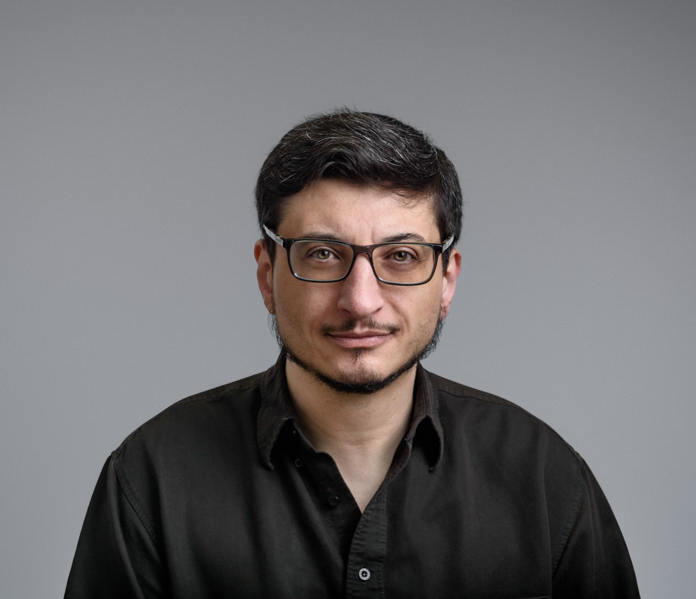Some Thoughts with ... Stephen Aryan
21 Jul 2023The Author/s

Stephen Aryan
Stephen Aryan was born in Iran in 1977 and raised in Whitley Bay, on the northeast coast of the UK. He has been reading fantasy since a very young age. It started with books by David Eddings, Tolkien, C.S Lewis, Terry Brooks, Ursula le Guin, Margaret Weis and Tracy Hickman and later David Gemmell, who had a huge influence on his work.
Stephen lives in the West Midlands with his partner and two cats. When he’s not writing novels or podcasting, he can be found drinking real ale, reading books or watching TV.
The Interview
1.- How did
you start as a writer? How much time passed from your first draft to being
agented, to the release of your first book, Battlemage (2015)?
Unwisely, I started writing full-length novels when I was nineteen or twenty.
Throughout my twenties and thirties, I wrote novel after novel, was rejected,
sulked, cried, put the book in a trunk, then started on a new one. I received
interest from a literary about a new fantasy novel in 2013. That book turned
out to be Battlemage, which was published in 2015 by Orbit Books.
2.- Your previous series were pure fantasy. However, The Nightingale and The
Falcon could be classified as historical fantasy. Why did you choose this
subgenre for the new series?
I never want to do the same kind of story twice. It becomes boring to write and
therefore boring to read. I constantly want to challenge myself and this felt
like it would be interesting. Mixing fact and fiction, blending the two
together in what I hope is a seamless way, to create something new and different
and original. In a crowded and busy publishing market, it is incredibly
difficult to achieve.
3.- What
made you choose the setting of Persia for The Judas Blossom?
I thought it was time to delve into my Persian heritage. It’s also a part of
the world that a lot of people don’t really know that much about. Persia has a
rich culture that spans centuries and it is full of poetry, literature, art,
amazing architecture, food, mythology and so much more. The food. Wow, is the
food good? Persia is a rich and fertile area that no one is writing stories
about, in terms of historical fantasy. As far as I know, this is the first
Persian-inspired historical fantasy series.
4.- We could say that you have a certain experience in writing and publishing. How
would you say your creative process has evolved over the time?
I know what works for me and what doesn’t. At the start, I was still trying to
figure it out. The best time and place for me to write. The best style. How to
plan my books or not. Character and world-building first, or theme first and
then plot. It’s been a lot of trial and error, before I was published with all
of those trunk novels, and since I published Battlemage. Now I have familiar
rhythms that I use to keep me on track, so I never miss a deadline.
5.- You
have an interesting YT channel, talking and debunking many myths about
publishing, among other themes. What gave you the idea to start it?
The amount of bad information floating out there about traditional publishing
is ridiculous. At first, it was a knee-jerk reaction to try and level the
playing field by exposing the lies, the bias and nonsense that some so-called
experts espouse, despite the fact that they have never worked in the industry,
or spoken to an agent, editor, or been traditionally published. I’m always
fair.
I am not there to vilify self publishing, far from it in fact, and I have
done interviews with indie and traditional authors. Both paths have pros and
cons and they are just different. After about a year, I found the majority of
writers talking on YouTube were self-published and there are only about a dozen
that are traditionally published. So even now, it is difficult to get reliable
information from trusted sources.
6.- This is
your fourth published series. Are you nervous about the reception?
I’m always
nervous about a new series. I’m particularly nervous about the reception of this
one because it is the most difficult series I’ve ever written, and because in
many ways, it is the most personal. I have no idea how it will be received, but
so far, early reviews have been positive, so fingers crossed.
7.- What
advice would you give to an aspiring traditionally published author?
Two pieces of advice. The first is for all writers. Finish the book. Even if
you plan your books like me, you don’t know the full shape of your book until
it’s done. Then you can step back, see the peaks and troughs, see the patterns,
the character arcs, the changes that evolved organically while you were writing
and so on. Then you can start trying to make it fit the idea of the novel in
your head. You can’t do that until it’s all written down.
My second piece of
advice is, remember that publishing is a business and having some business
acumen is a good thing.
8.- What
can we expect from Stephen Aryan in the future?
Something
different again. I have a few ideas but I can’t tell you anything about them
yet, as I have not even spoken to my agent.
